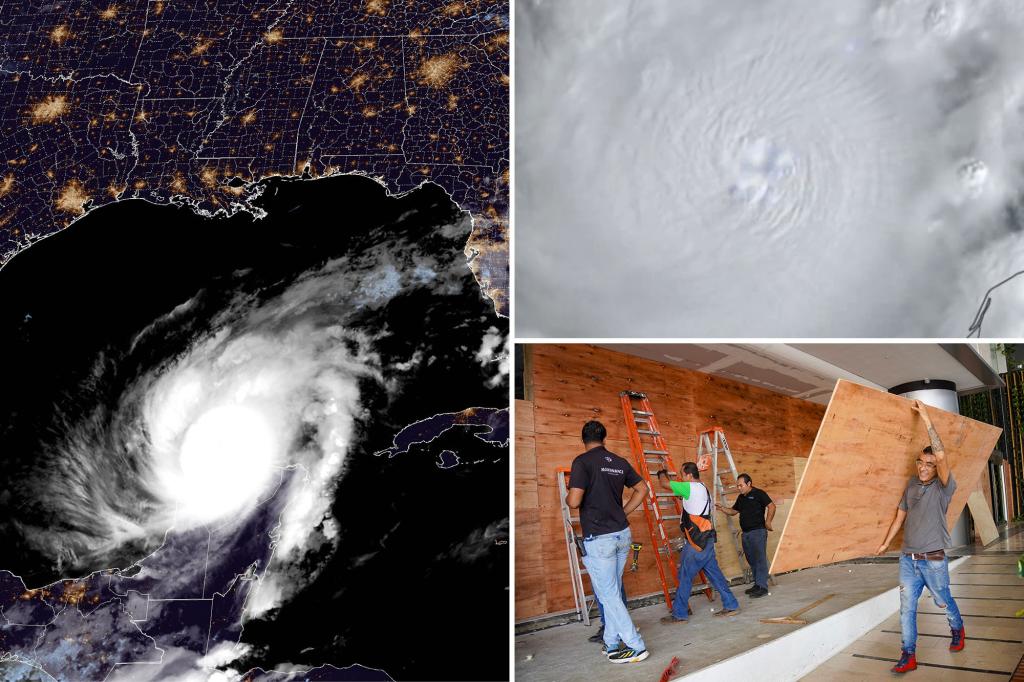Hurricane Milton is causing alarm with its record-breaking wind speeds, hitting 200 miles per hour and leading to discussions about creating a new Category 6 designation for superstorms. Florida meteorologist Noah Bergren described the storm as “astronomical” with sustained winds of 180 mph and gusts exceeding 200 mph. The hurricane’s intensity is pushing the limits of what the Earth’s atmosphere can produce, and it is expected to have a devastating impact on Florida’s gulf coast as it approaches.
Despite being downgraded to a Category 4 hurricane with winds of 155 mph, Hurricane Milton is predicted to increase in intensity as it approaches land. Starting as a tropical storm with 60 mph winds on Sunday morning, Milton rapidly escalated to a Category 5 hurricane with 180 mph winds within 36 hours. The storm’s incredible speed of intensification has caught the attention of meteorologists and experts in the field.
There have been discussions about expanding the Saffir-Simpson Hurricane Wind Scale to include a new sixth category for hurricanes, given the exceptional intensity of Hurricane Milton. Michael E. Mann suggested that the storm may have surpassed the cutoff for a Category 6 hurricane if it reaches 192 mph. Climate scientists Michael Wehner and Jim Kossin published a study earlier this year suggesting that recent storms have already reached this hypothetical Category 6 intensity and more are projected as the climate warms.
While some experts advocate for a new category to account for the increasing intensity of hurricanes due to climate change, others argue that it is unnecessary. Mike Rawlins from Fox Weather believes that the Saffir-Simpson scale remains the standard for measuring hurricanes and creating a new method may not be necessary. The late Robert Simpson, co-creator of the Saffir-Simpson Wind Scale, expressed a similar sentiment in 1999, stating that adding a sixth category would not significantly impact the extreme damage caused by Category 5 storms.
Hurricane Milton is already one of the strongest hurricanes on record based on barometric pressure, a measure of storm intensity. With central pressure at 897 millibars, Milton is the fourth strongest hurricane recorded based on this metric. Only five hurricanes in historical records have had a pressure below 900 millibars in the past 170 years. Despite a slight weakening with a pressure of 924 mb on Tuesday morning, Hurricane Milton continues to pose a severe threat to the areas it approaches.
As Hurricane Milton approaches Florida’s gulf coast, experts and meteorologists are closely monitoring its trajectory and intensity. The storm’s unprecedented speed of intensification and record-breaking wind speeds have sparked discussions about the need for a new category for superstorms. While some argue for a sixth category on the Saffir-Simpson scale to account for the increasing intensity of hurricanes due to climate change, others believe that the current scale is sufficient. Hurricane Milton’s impact is expected to be devastating, highlighting the urgent need for preparedness and response measures to minimize the storm’s impact on communities in its path.


